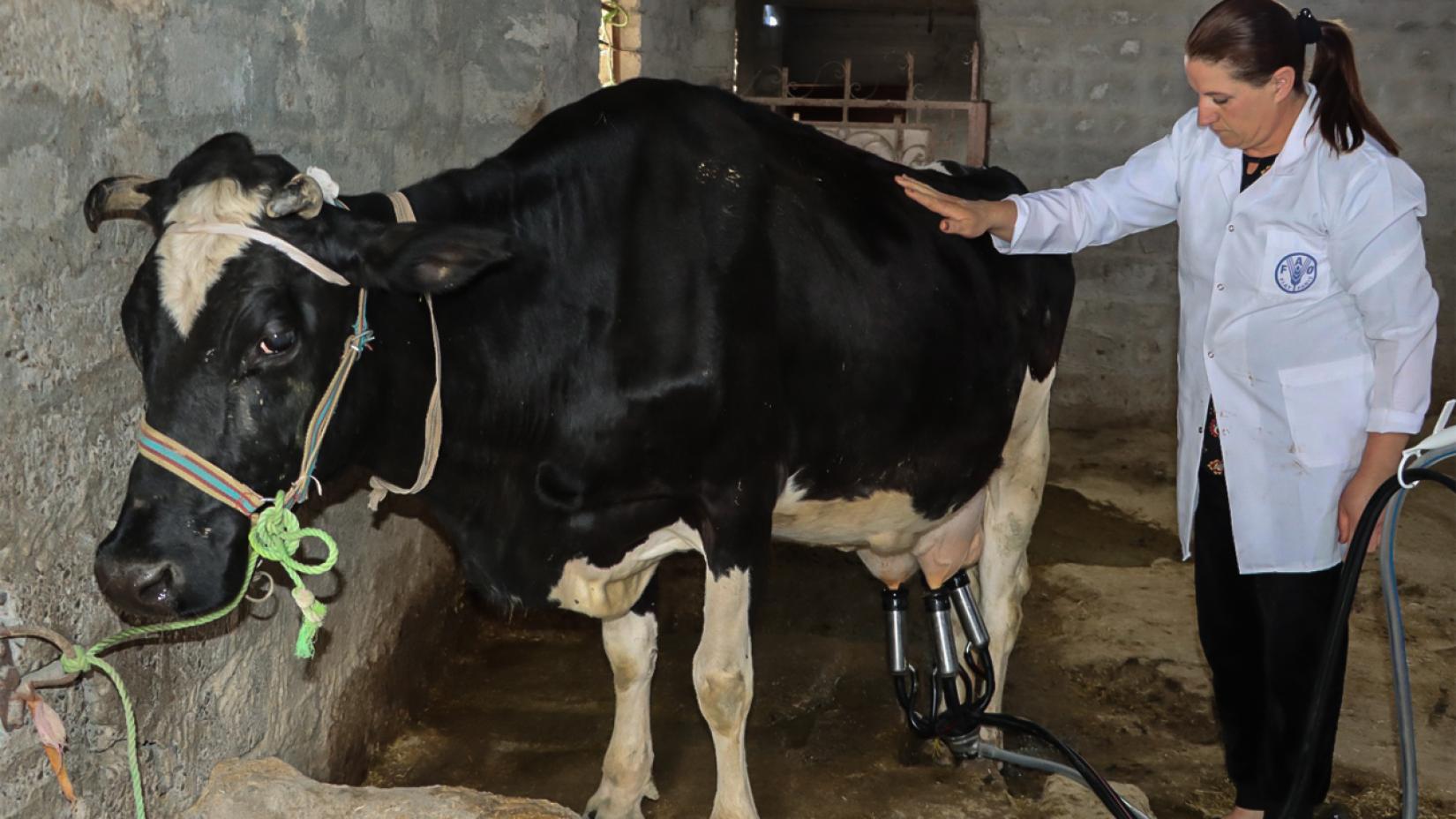FAO Iraq announces the launch of Phase II for Animal Health Advancements in Iraq
27 December 2023

Baghdad, 27 December 2023
The Food and Agriculture Organization of the United Nations (FAO) in Iraq is proud to announce the launch of Phase II of the project titled "Improving Delivery of Animal Health Services and Disease Surveillance in Iraq” with funding from the United States Defense Threat Reduction Agency (DTRA). This transformative initiative, which will be implemented by FAO with the support of the Iraqi Ministry of Agriculture (MoA), will build on the successes and best practices from the Phase I of the project from 2019 to 2023.
During the initial phase, the project achieved significant outcomes that laid the foundation for enhanced animal health services and disease surveillance in Iraq. A comprehensive review of the legal framework governing veterinary services identified the need for streamlined regulations to avoid fragmentation and potential gaps. The collaborative efforts of FAO, DTRA, and MoA resulted in the successful training of 1,595 individuals of national executives, including 499 women (31.2%) and 1,096 men, through workshops between 2021 and 2023.
The impact of the project extended across diverse groups of farmers, animal owners, traders, association members, laboratory staff, field veterinarians, and professionals from related departments. Workshops facilitated public awareness, empowering participants to identify and respond to priority animal diseases promptly. Veterinarians gained new skills, leading to improved service delivery and were supplied with globally dependable lab equipment to enhance diagnostic capabilities.
Additionally, the introduction of electronic reporting technology in six targeted governorates advanced early warning responses, aiding timely decision-making. The success of Phase I sets the stage for the continuation and expansion of these crucial efforts in Phase II.
Building upon the achievements and lessons learned from Phase I, a two-year agreement is signed, allocating US$ 3.9 million to further enhance disease recognition, diagnostics, epidemiology, data analysis, reporting, and early warning systems.
The phase II of the project, named "Strengthening Iraq Veterinary Legislation and Expanding Delivery of Animal Health Services and Disease Surveillance," will strategically train veterinary staff in Sulaimanya, Dayala, Maysan, and Najaf governorates. Leveraging the expertise of Phase I-trained technical staff, this initiative marks a significant leap towards a sustainable and resilient animal health sector.
FAO Iraq Representative, Dr. Salah El Hajj Hassan underscores FAO's unwavering commitment to establishing solid veterinary services aimed at mitigating the risk of high-threat animal diseases spreading throughout Iraq and neighboring regions. He affirms, " Improving animal health is crucial for reinforcing the overall well-being and livelihoods of our region." FAO takes pride in its collaborative efforts with DTRA and the Ministry of Agriculture, contributing actively to the reduction of threats and fostering a resilient and secure environment."
MoA Technical Deputy, Dr Mithaq Al Khafaji, underscores the ministry’s commitment to the collaborative effort, stating, "Through this partnership with FAO and DTRA, we reaffirm our dedication to building a resilient veterinary sector. This joint initiative is a testament to our shared commitment to the well-being of our communities, ensuring the health and prosperity of both our livestock and our people."
FAO Assistant Director General for the Near East and North Africa (NENA) region, Dr Abdulhakim EL Waer praised these collaborative efforts and stressed: "Launching Phase II of this project is a crucial stride in reinforcing veterinary services.” This initiative not only enhances Iraq's capacity but also contributes to regional resilience against high-impact animal diseases. This initiative reflects FAO's commitment to sustainable development in the NENA region, ensuring the health and prosperity of communities."
Activities under Phase II will result in an enhanced early warning system supporting early detection, diagnosis, and control of outbreaks. The joint project will also focus on developing strategies and policies to sustain veterinary services within the targeted governorates through a train-the-trainer model.
This initiative aligns with several United Nations Sustainable Development Goals, including Goal 2: Zero Hunger, Goal 3: Good Health and Well-being, Goal 5: Gender Equality, and Goal 13: Climate Action, showcasing the commitment to a comprehensive and integrated approach towards sustainable development.




